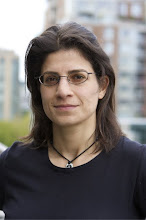Reflections and ideas based on reading
CITIZENSHIP EDUCATION IN THE CONTEXT OF SCHOOL MATHEMATICS"
by Elain Simmt
Undoubtedly, mathematics plays an important role both in terms of numeracy and logic in not just today's society but throughout ages and in varied and diverse societies all over the world. Once sees applications of mathematics in nature, art, science, technology, business, economics, sociology, health, meteorology, sports, politics, architecture, transportation, spirituality, ... This is in form of numbers & figures in quantitative measurements, shapes and geometry, probability and statistics, and diagrams and graphical representations. Examples of applications range from describing natural phenomenon through mathematical modeling and devising multi-parameter models to predict reality to using power law to explain growth/decline rates and fractal geometry for image compression, Mathematics also forms the basis for decision- and policy-making, economic and financial transactions. We even use mathematics in our day-to-day lingo: weighting one's options, trends,
Mathematical thinking, through the processes of posing questions, discussing and devising different approaches to solving problems, using critical reasoning to making sense of conceptions, analyzing current events which quote or use mathematical results, recognizing patterns, making connections, making estimations and educated guesses, communicating and describing results, offering explanations, ..., enable and empower students to apply these tools in other aspects of life and outside the classroom.
I believe individuals should not be accepting the so-called "facts" at their face value. They should instead be constantly asking questions like: "does it make sense? Is this right? What does this mean? What is this trying to tell me?, ..." I intend to instill this belief in the students I cross paths with.
Subscribe to:
Post Comments (Atom)

No comments:
Post a Comment